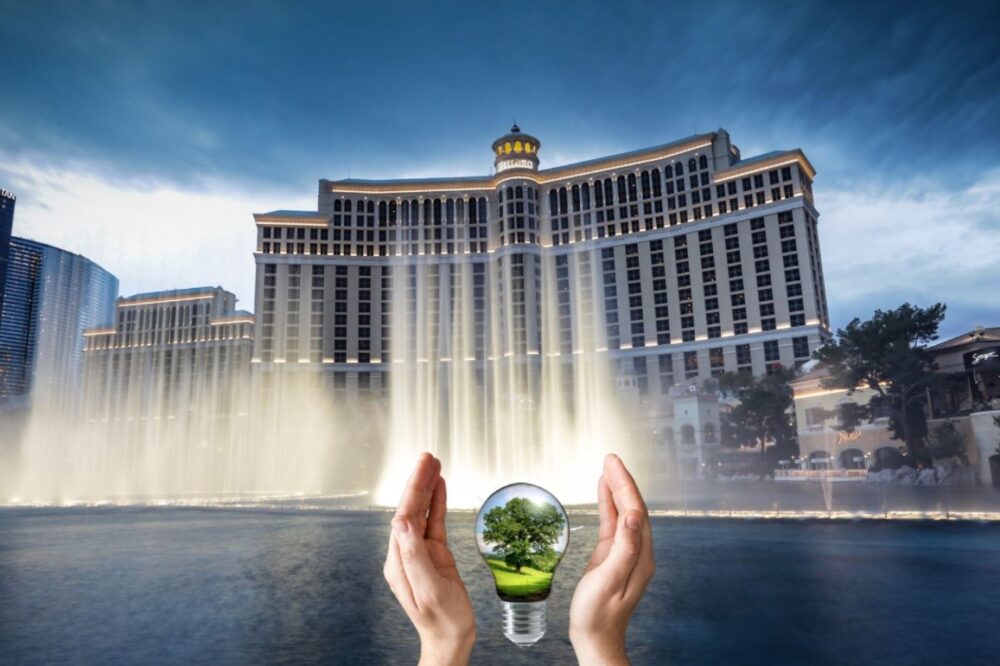
Energy usage in hotels has become a big issue in a world of uncertain energy pricing and environmental concerns among businesses. Therefore, it’s critical to utilize appropriate conservation measures in heating, cooling, lighting, and water consumption to maintain hotel sustainability.
Most hotels want a reliable energy partner to assist them in navigating and controlling expenses through innovative energy procurement practices. Whatever path you choose, Utility Bidder will walk you through some practical techniques that hotel owners can implement right away!
Why Should Your Hotel Invest in Energy-Saving Solutions?
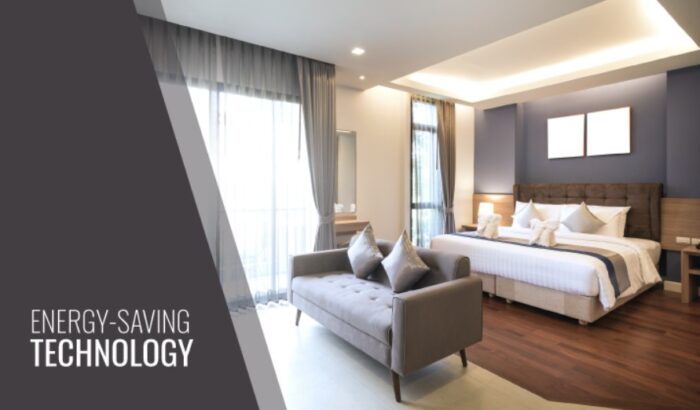
As environmentalism grows in popularity among guests, it is more vital than ever for hotel managers to make significant modifications and deploy energy-saving alternatives. In addition, consumers are drawn to eco-friendly hotels because they are concerned about resource consumption and waste.
Of course, a hotel must provide a relaxing atmosphere complete with all of the comforts of home. Guests expect a well-kept, well-run establishment. Many people aren’t willing to pay for a hotel that feels more like a hostel, even if they like your eco-friendly efforts. It’s critical to tread a fine line among energy-saving measures and preserving the visitor experience.
It is a pretty straightforward procedure to put energy-saving ideas into action. Many of the adjustments may be made without guests noticing (though you may want to emphasize your environmental awareness, as it’s a significant appeal for environmentally conscious tourists). With so many costs associated with running a hotel, saving money on energy might allow you to spend more on other elegant room amenities to impress your visitors.
Energy-saving technologies may help your hotel go from exceptional to thriving and ecologically responsible. Guests appreciate the option to stay in a clean, beautiful, and environmentally friendly environment. It’s time to make a change!
Energy-saving and cost-cutting tips for your hotel
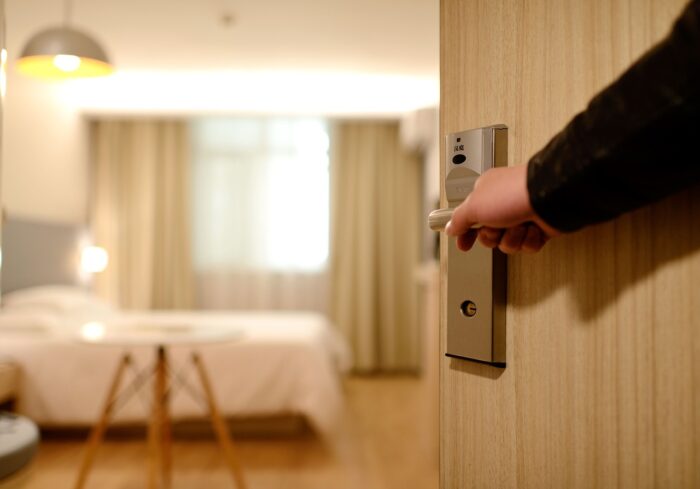
There is no better moment for hotels to start reaping the energy-saving advantages of modern technologies than now. Here are ways hotels of all sizes may begin to save resources and money by implementing new tech:
1. Using Smart Climate Controls
Climate control is one energy necessity that all businesses have in common. Whether it’s for air conditioning or heating, every company needs temperature control and, in many cases, a specialized HVAC system.
The Internet of Things and machine learning are assisting businesses in reducing their energy use and prices dramatically. There is no shortage of energy-management systems available to help companies to save money on their energy bills, from smart thermostats that allow users to regulate their energy use around daily occupancy demands to intelligent sensors that detect variations in real-time occupancy.
Hotels discover that efficient energy-management systems enhance their energy savings due to irregular occupancy patterns. These systems optimize energy use in real-time, all year long, using advanced machine-learning algorithms and various data sets such as historical thermodynamics, local weather patterns, and peak demand loads.
2. Invest in energy-saving appliances
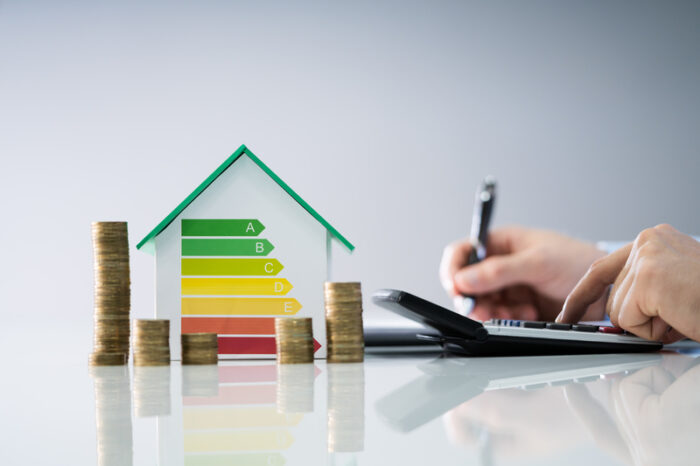
Any energy-saving option for your hotel will have the most significant impact if you invest in energy-efficient appliances. Always verify the energy efficiency rating as you install new devices and phase out older ones.
Even when rooms are empty or the equipment isn’t in use, mini-refrigerators, ice machines, and vending machines are kept running. Hoteliers lose hundreds of dollars each year because refrigerator vending machines are left on all night. Guests, on the other hand, require vending machines.
For hotel operators, energy-efficient equipment is a wise long-term investment. Alarm clocks, coffeemakers, and irons are just a few of the in-room conveniences that need to be replaced regularly. Consider choosing energy-efficient solutions when you replace and upgrade tiny gadgets. Begin modestly, implementing these equipment improvements one level at a time and calculating the savings. Then, use the additional funds to improve your hotel’s appliances to be more energy efficient.
3. Implement Solar Panels
The emergence and dissemination of solar technology benefit more than just rising economic superpowers and Australian suburbanites. For example, hotels reduce their energy expenses by utilizing more inexpensive solar equipment.
Solar energy technology provides companies with a two-fold opportunity: it allows them to cut their energy use from the grid while also selling excess production back into the system. As a result, hotels may save money on their energy bills and subsidise any remaining energy us
4. Smart Lighting System

Hotels may also use innovative lighting technology to analyse their energy demands better, automate their use, and adjust to variations in occupancy in real-time. By switching to an innovative LED lighting system, some businesses have saved up to 75% on energy expenses while increasing productivity by 20%.
Intelligent lighting solutions enable properties to define preferred illumination schedules and track activity to enhance workflow throughout the building, just as EMS helps hotels alter energy use based on real-time climate-control demands.
5. Predictive Maintenance Systems
like energy-management systems that monitor, measure, and optimize energy use, allows hotels to use sensor data to spot inefficient or dangerous tendencies and warn the maintenance before the problem becomes much more costly. An HVAC system varies between different proficiency levels depending on occupancy demands.
For example, wear and tear on its many physical components will occur. Predictive maintenance allows engineering personnel to estimate maintenance needs based on system usage, preventing system failures and lowering the expenses of maintaining a flawed system, rather than waiting for a component to break down before repairing or replacing it.
Several online admin tools gather data on HVAC runtimes for each room and issue performance scores. This score indicates how fast a room can be warmed or cooled to the guest’s chosen temp, and it offers important notifications to technical staff when HVAC equipment requires maintenance.
Takeaway
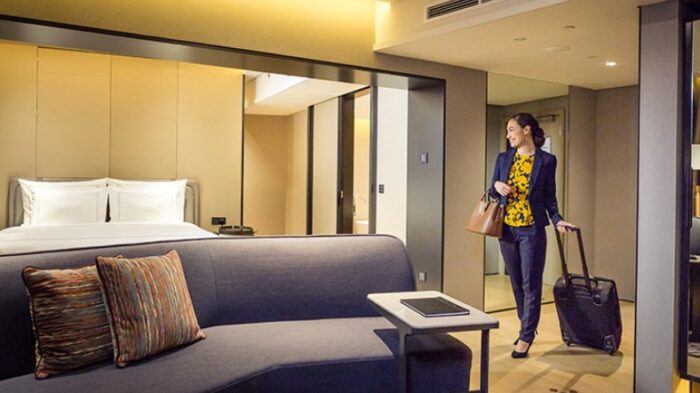
Many of our likes, interests, and requirements change as technology improves. It renders old sectors obsolete, births new ones almost overnight, and drastically alters marketplaces’ supply and demand balance. Yet, the necessity for energy consumption is constant.
Energy consumption is an ordinary expense of the operating company, whether it’s creating tangible things, providing a comfortable experience for consumers, or keeping staff happy, productive, and motivated. However, hotels prepared to accept technological advancements will find plenty of ways to cut their energy expenditures.
Its location and even client preferences will determine the ideal combination of energy-saving equipment for every hotel. The bottom line is that hotels that use technology to reduce energy costs will be more lucrative in the long run and better equipped to adapt to the ever-changing technology.








